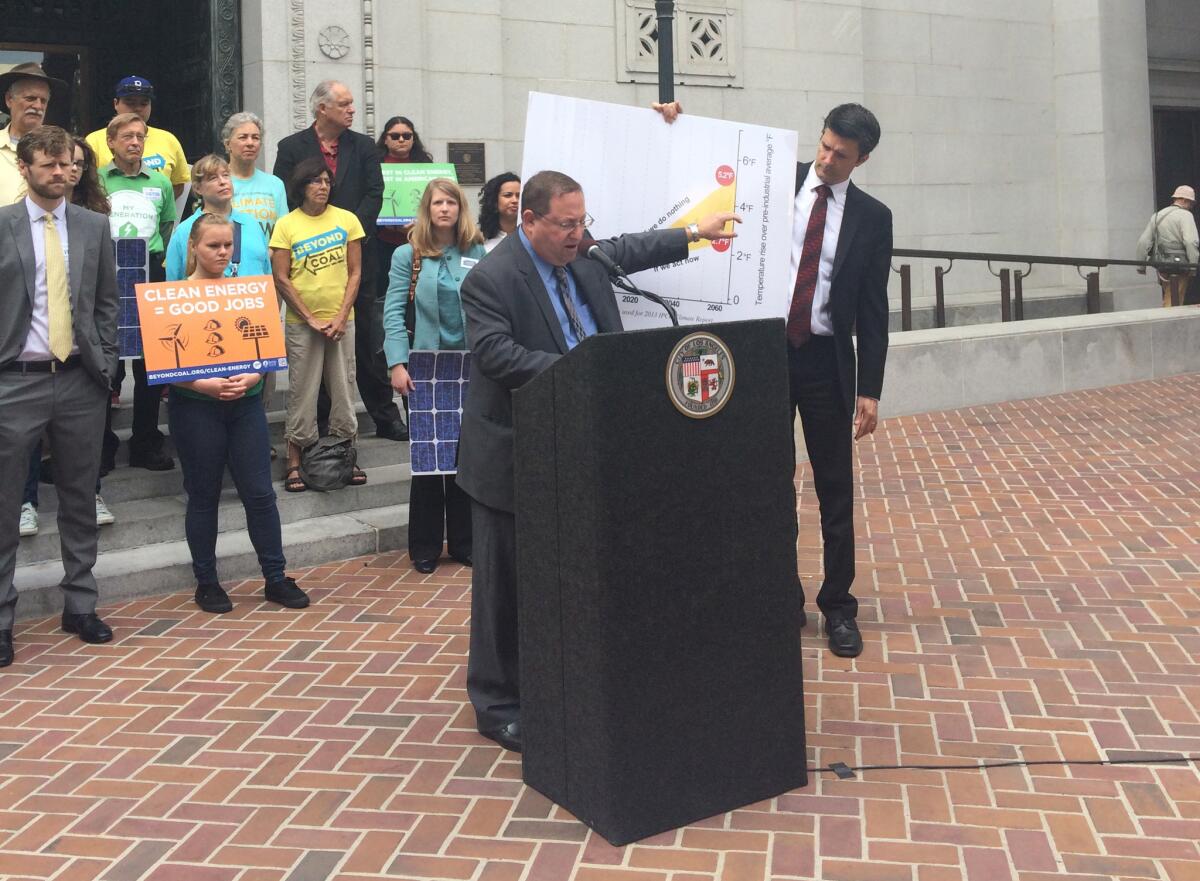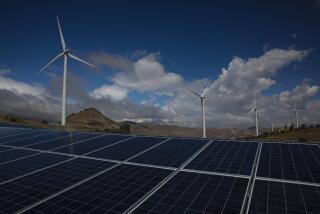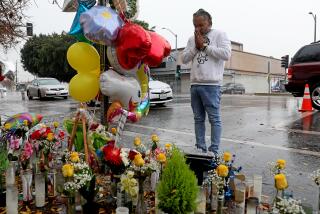L.A. councilman to propose measure to slash greenhouse gas emissions

A Los Angeles city councilman wants the city to set a new “life and death” goal for slashing greenhouse gas emissions, warning of dire consequences if government and business leaders drag their feet.
“The climate crisis is no longer out there in the future,” Councilman Paul Koretz told reporters at a news conference Friday. “It’s here. It’s now.”
Koretz said the city should set a target of cutting its emissions to 80% below its 1990 levels by 2050 -- a goal already embraced by other U.S. cities including Boston and San Francisco.
Koretz said he planned to introduce his proposal in a council motion on Friday. It suggests the city should do more to reduce waste, install solar energy cells on rooftops, retrofit buildings to be more energy efficient and take other steps that could help Los Angeles reach the new goal.
The city of Los Angeles has already set a lower, more immediate goal of reducing emissions 35% by 2030. As of last year it had slashed emissions by 30% below 1990 levels, according to Koretz’s office.
In addition to the steeper citywide goal, Koretz wants the Department of Water and Power to meet that same target decades earlier than the city at large, achieving an 80% reduction by 2030 instead of 2050.
DWP emissions have already dropped 22% below 1990 levels and the department expects “even more dramatic” reductions as it expands renewable energy and eliminates coal power from its Navajo and Intermountain power plants, spokesman Joe Ramallo said in an emailed statement Friday.
Koretz asserted that thanks to such efforts the department was already on track to reduce its greenhouse gas emissions by 58% by 2030 -- short of the 80% goal but not by much, he said.
“The DWP is almost all the way there,” Koretz said. “We just want to give them a nudge to get all the way there.”
Follow @latimesemily for what’s happening at Los Angeles City Hall.
More to Read
Start your day right
Sign up for Essential California for news, features and recommendations from the L.A. Times and beyond in your inbox six days a week.
You may occasionally receive promotional content from the Los Angeles Times.







